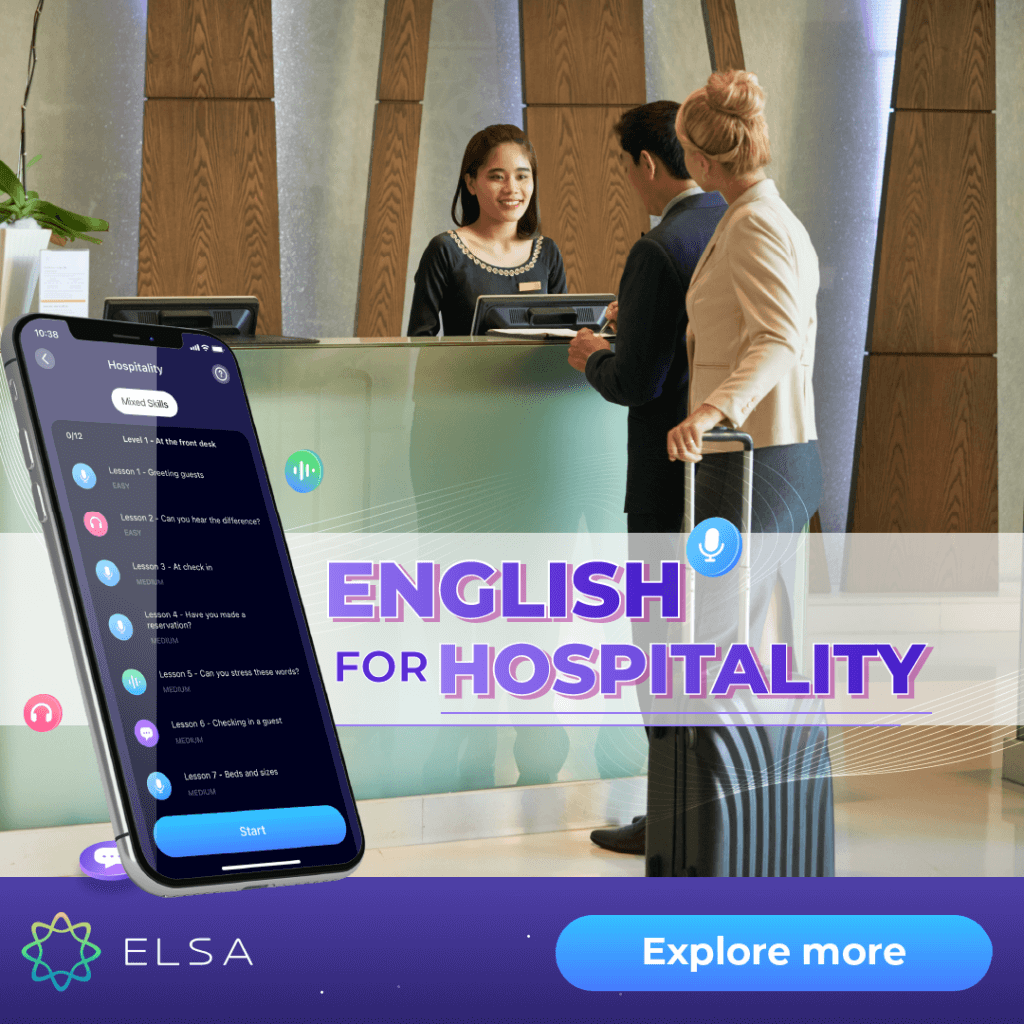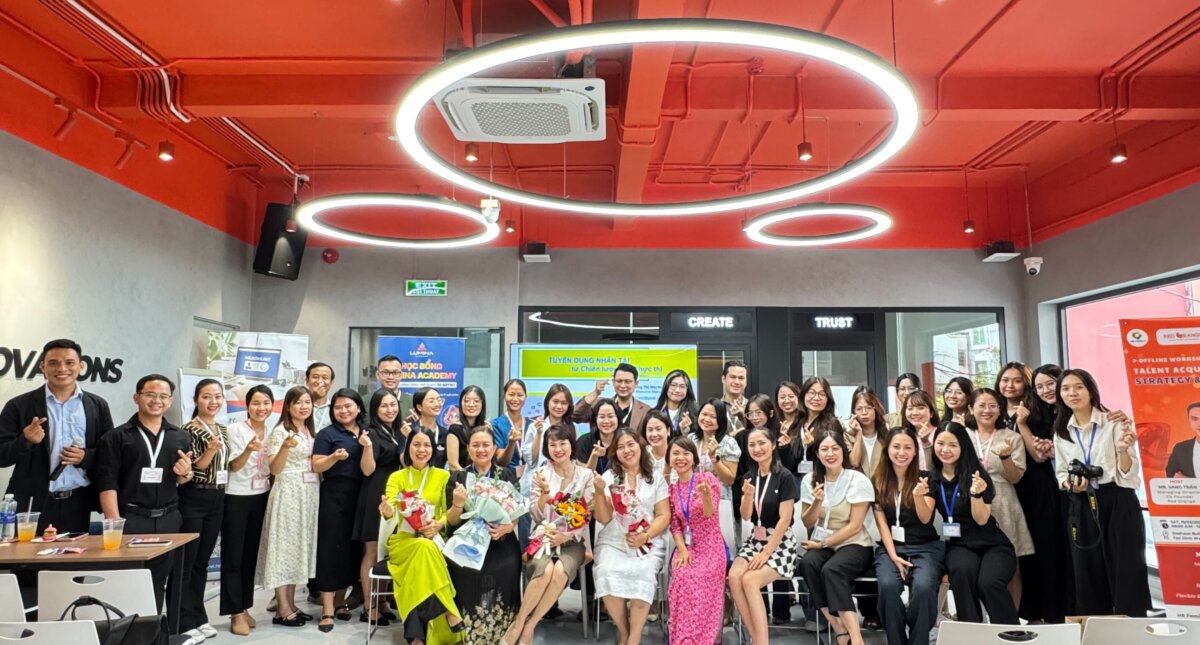The hotel industry is one of the most preferred by young people thanks to its diverse career opportunities, especially when tourism demand is increasing after COVID-19 stabilizes. Therefore, hotel career skills are essential skills that every employee working in a hotel restaurant role needs to master to successfully complete the task and excel in his or her position. The following article will provide you with the necessary information about skills to apply for a job in the hotel industry, especially English for Business in Hospitality.
Hospitality skills refer to a combination of both soft and hard skills in which soft skills such as interpersonal or communication skills are more dominant. With professional hospitality skills, a hospitality employee will easily empathize and serve customers, communicate, and coordinate with colleagues, thereby ensuring customer satisfaction and positive business outcome for the company.
Kiểm tra phát âm với bài tập sau:

Being a professional in the hospitality field requires employees to master and feel comfortable to perform the following basic manners that are highly recommended by Indeed:
1. Always over prepare
Most hotels serve many guests during the day, and each of them has different needs, leading to difficulties in anticipating all of their requirements for your priority plan. As such, schedule a specific time in your day that you can spend dealing with unexpected problems. This preparation will make it easier for you to respond when a customer needs extra help, a job takes longer than expected, or your teammates need assistance.
2. Always on time
Any position in the hospitality industry necessitates excellent time management. When guests expect service at a specific time, they tend to lack patience for waiting and being late can cause irritation and discomfort. Furthermore, keeping guests waiting can lead your colleagues to adjust their schedules to cover your tasks, lowering the quality of service they can deliver, so being on time will facilitate communication pleasantly for both you, the guest, and your colleagues as well.
3. Always maintain your poise
We often try to learn how to talk, persuade, and negotiate with customers but often neglect to learn to recognize their body language signals. The better you understand your customers, the more thoughtfully you can serve. Body language can also be used to forecast a guest’s wants before they are approached. For example, when someone looks around in a hallway, they may need the staff’s help but do not know who to ask. By responding to a customer’s body language before they even articulate their needs, you will make them feel cared for and valued.

4. Always ready to communicate in English
Nowadays, English for business in hospitality has become a basic requirement in any job, especially for the hospitality industry. With English, hospitality staff can easily understand customers’ demands as it is the most used language by travelers. Moreover, an English-speaking staff can create a cozy and comfortable feeling for the customer when they can talk in a familiar language, even if they are far from home.
However, employers must consider carefully when choosing a method to improve English for business in hospitality for their staff, because many methods are outdated, time-consuming and complicated for learners. In contrast, many methods use new technology that customizes lessons based on users’ levels, not only enhancing learning efficiency but also bringing learners new experience.

A typical example is the English speaking application ELSA Speak. The application is equipped with AI technology to recognize the learner’s voice, detect mistakes in pronunciation and quickly correct them. In particular, hospitality is one of the most well-designed topics of ELSA Speak. With hundreds of lessons, from pronouncing specialized words to practicing communication in sample conversations, users will learn practical knowledge to apply in their daily work. In addition, with periodic reports, this application can help managers keep track of employees’ learning progress and measure investment efficiency.
Without proper training, gaining hospitality job skills can be difficult for some, especially if you are in a management position. Therefore, employers should focus on equipping employees with these skills to build a healthy culture, maintain business ties, and aim for the company’s long-term development.
Explore more about ELSA English Speaking training solutions for hospitality businesses here.


 26/01/2022 | Admin
26/01/2022 | Admin







